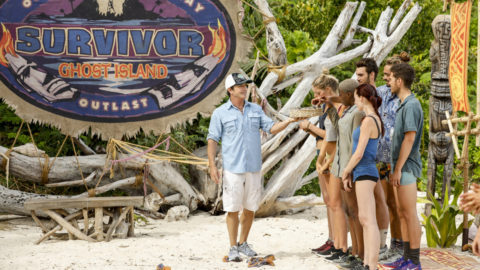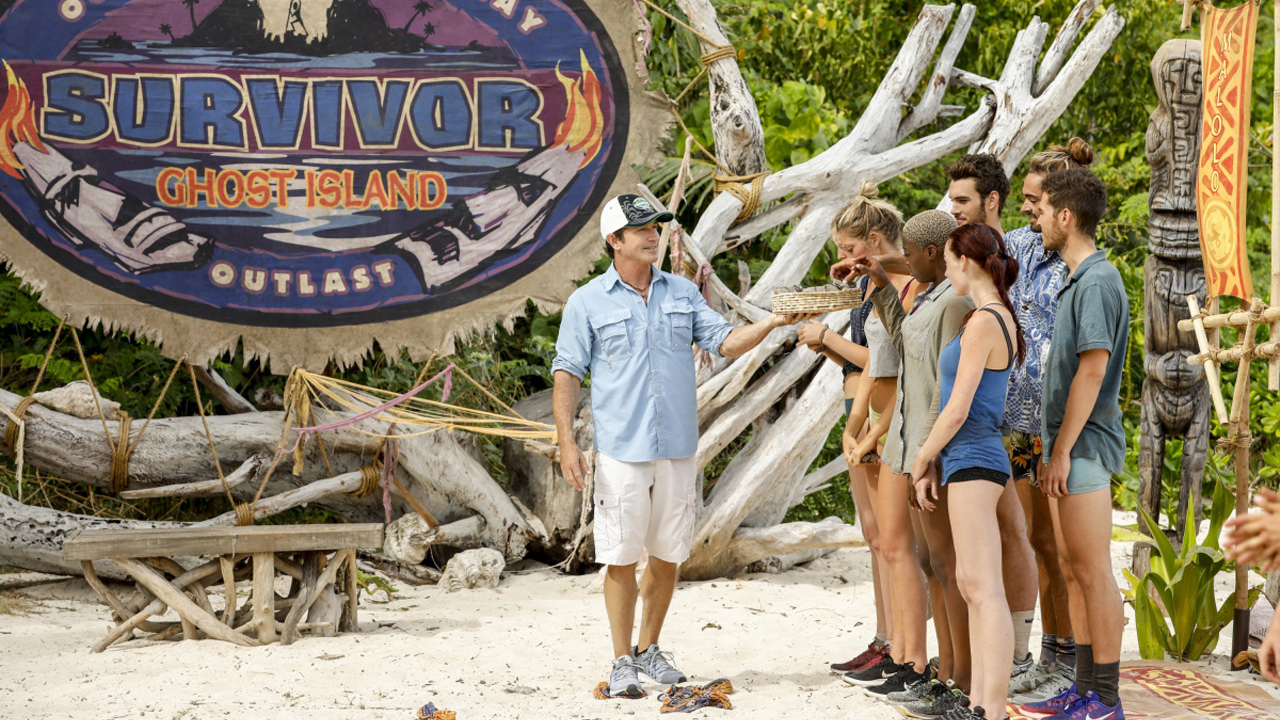The Snake Eats the Rat: How Survivor Changed Everything
Not only did it usher in the era of reality TV, argues writer JP Larocque, it impacted our culture in bigger ways for decades to come

August 23, 2000. I remember it clearly.
It was the final week of summer vacation before my senior year of high school, and I was spending it in yearbook camp with my co-editor and then-girlfriend. It was more fun than it sounds: We were staying in the dorms of a nearby college, and while the days were little more than dry lectures on photo editing software, nights were eventful teen affairs—raucous parties, our first true taste of freedom, far from the shackles of suburban parenting.
And this night was something else entirely. A group of us had gathered in one of the residence suites, surrounding a tiny television set, mattresses piled high on the floor as makeshift couches. It was the finale of the first season of Survivor, and none of us could conceive of missing it. Back then, life stopped for Survivor.
But as we watched Richard Hatch walk away with the million-dollar prize, I don’t believe any of us realized what we were actually witnessing—a cultural turning point, and one that would filter well beyond television.
It may be hard to comprehend twenty years (and some forty seasons) later, but Survivor was once a television juggernaut, and the likes of which is non-existent in our current fragmented media landscape. Fifty million viewers tuned into that finale episode, after the series dominated the news cycle for an entire summer. Its success sent shockwaves through the entertainment industry, with executives excited by a new production model free of big-budget red tape, unions and demanding marquee performers.
The series singlehandedly ushered in the era of reality television in North America. Shows like Big Brother, Temptation Island and our beloved The Bachelor soon followed, filling up network schedules and throwing the scripted world into disarray. Television writers decried the end of complex storytelling, and actors began to panic as they were squeezed out by untrained “personalities.”
And while the concerns over the death of scripted storytelling may have been premature, Survivor did transform the notion of celebrity. The studio-controlled, PR-friendly fame of the second half of the twentieth century, one predicated on saleable talents, gave way to something messier and less predictable. Season 1 competitors like Colleen Haskell, Jenna Lewis and Gervase Peterson became household names, but the old trappings of Hollywood were an uneasy fit for them. Uncertain in the film and television roles tossed their way and a decade or so out from the social media branding awareness that would allow the Kardashians to build an empire from their own reality show roots, most of the original cast couldn’t sell themselves beyond the initial notoriety. (David Letterman famously mocked the reality competitors that would turn up on his show, drawing a firm line between them and his usual line-up of actors and musicians.)
But then there was winner Richard Hatch. Hatch’s fame also dwindled beyond the series, but his legacy was setting up the reality “villain” template that others would perfect and mutate (looking at you, Juan Pablo). Revisiting that first season, it’s fascinating to watch Hatch as a fully-formed Machiavellian trickster, ready to secure a role, build alliances and manipulate his co-stars for personal gain. So much memorable tension is gleaned from the community-minded obliviousness of his competitors butting up against his ruthless, “I’m not here to make friends” tactics. His public nudity, divisive behaviour and aggressive (and unwanted) flirtation were all clear ploys designed to undermine and destabilize his competitors.
Hatch’s shamelessness became his not-so-secret weapon and, worst of all, it worked. By the time the rest of the cast realized what he was doing, it was too late. In perhaps the most famous moment of the finale, a Tribal Council of eliminated competitors revealed themselves to be disgusted and impressed by Hatch’s tactics in equal measure, with former ally Sue Hawk referring to Hatch as a “snake” worthy of victory. “I believe we owe it to the island spirits we have come to know to let it end in the way that Mother Nature intended: for the snake to eat the rat.”
The snake ate the rat, Hatch walked away with the grand prize, and his gaming of the system made the series a runaway success. As nature intended.
This ruthlessness became increasingly normalized, even valued, throughout our culture, an “us-vs-them” mentality made all the worse by the vacuum of social media and the fragmentation of entertainment and the news outlets. Eventually, we were only listening to the voices we wanted to hear that reinforced our own views. Any spaces for meaningful conversation or civil debate were condensed—in politics, in social movements and in our daily dealings with each other. It became a game of one-up-manship, of delivering withering insults, of tripping each other up, of “cancelling” each other. The point was not to learn or understand each other, but to eliminate opponents and win at all costs.
Survivor also set a dangerous precedent that tangled fame and infamy. The next phase of reality television would cast with an eye to Hatch-type villains you would love to hate, whether it be Flavor of Love’s Tiffany Pollard, RuPaul’s Drag Race’s Phi Phi O’Hara, The Apprentice’s Omarosa Manigault Newman or really any of The Real Housewives.
While competitors became more savvy at marketing themselves as brands, the genre encouraged ruthlessness on both sides of the judging table. Hosts became increasingly shameless and cruel in doling out insults. American Idol’s Simon Cowell, Hell’s Kitchen’s Gordon Ramsay or The Apprentice’s Donald Trump began to embody a type of destabilizing authority that was right out of Hatch’s playbook—powerful men telling both the viewer and competitor that the only way to get ahead is to be a snake, and that the only game to win is a divisive one.
Of screen, a generation of viewers came to equate tribal councils with government, and reality show winners with presidents. This influenced decisions at the polls, which impacted public policy. The needs of the community became less important than supporting perceived “winners,” those with financial means already occupying the top tiers of society, already gaming a system to bend in their favour.
After going to jail for tax fraud on his Survivor earnings, Hatch eventually returned for a subsequent season of the Survivor franchise, during which he was accused of rubbing his genitals on Hawk. Series producer Jeff Probst recently went on record as saying Hatch wouldn’t be welcome back on a new all-winners season despite his interest, as the show is “in a different time and culture now” post-Me Too and that he didn’t feel comfortable “having him on a show that’s for families.”
“It’s about inspiring kids to want to get out and make something and see what they’re capable of. This group is very inspiring.”
I think back to the time just after the finale all those years ago, after we had re-stacked the mattresses and returned to our respective dorm rooms. I lay on my bed that night, stunned and staring at the ceiling, still processing the events of the finale, when my roommate called out to me through the darkness.
“Hey, did you catch Survivor?”
“Yeah. It was OK.”
There was a pause, and I heard him shift in bed.
“I’m glad Richard won. He deserved it.”









